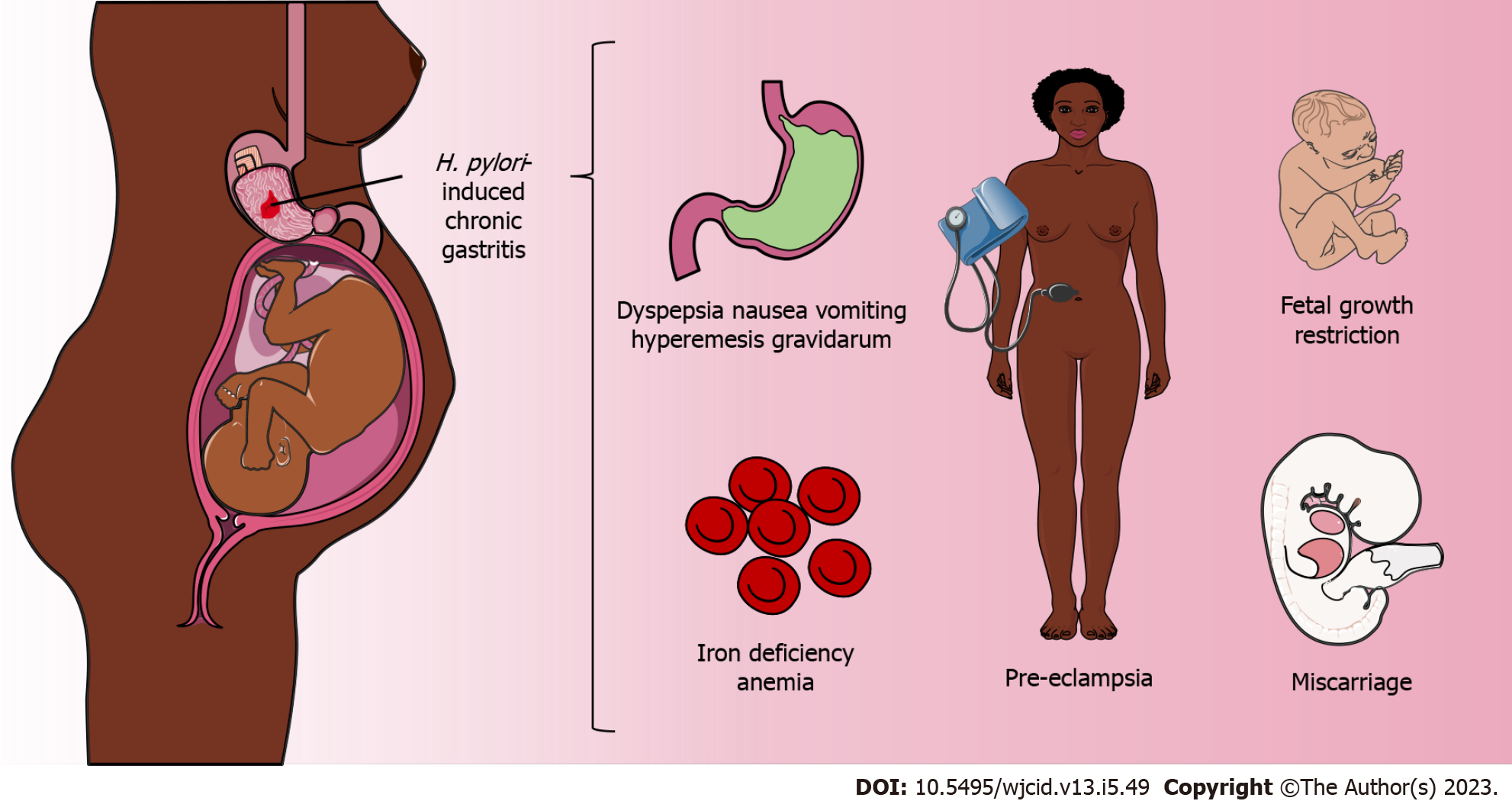Copyright
©The Author(s) 2023.
World J Clin Infect Dis. Dec 28, 2023; 13(5): 49-57
Published online Dec 28, 2023. doi: 10.5495/wjcid.v13.i5.49
Published online Dec 28, 2023. doi: 10.5495/wjcid.v13.i5.49
Figure 1 Main disorders related to the infection by Helicobacter pylori during pregnancy.
Helicobacter pylori (H. pylori) infection is able to cause damage to the gastric mucosa and stimulate local inflammation, which leads to the development of gastric disorders, such as dyspepsia, hyperemesis gravidarum, nausea and vomiting. Furthermore, the bacterium is responsible for modifying the capacity of absorption of micronutrients by the pregnant woman, contributing to the depletion of essential substances to the organism homeostasis. Among these nutrients, the reduction of organic iron reserves has been related to the emergence of anemia. In addition, the systemic inflammation stimulated by H. pylori can also be responsible for iron deficiency anemia. On the other hand, the immune response and the inflammatory process stimulated by H. pylori may cause placental and endothelial damages, which are able to promote the development of miscarriages and fetal growth restriction, which can also be caused by anemia, and pre-eclampsia.
- Citation: Santos LKS, Apolonio JS, Cuzzuol BR, da Costa BT, Lima de Souza Gonçalves V, da Silva Júnior RT, Luz MS, Lemos FFB, Pinheiro SLR, Freire de Melo F. Helicobacter pylori infection in pregnant women: Gastrointestinal symptoms and pregnancy- related disorders. World J Clin Infect Dis 2023; 13(5): 49-57
- URL: https://www.wjgnet.com/2220-3176/full/v13/i5/49.htm
- DOI: https://dx.doi.org/10.5495/wjcid.v13.i5.49









